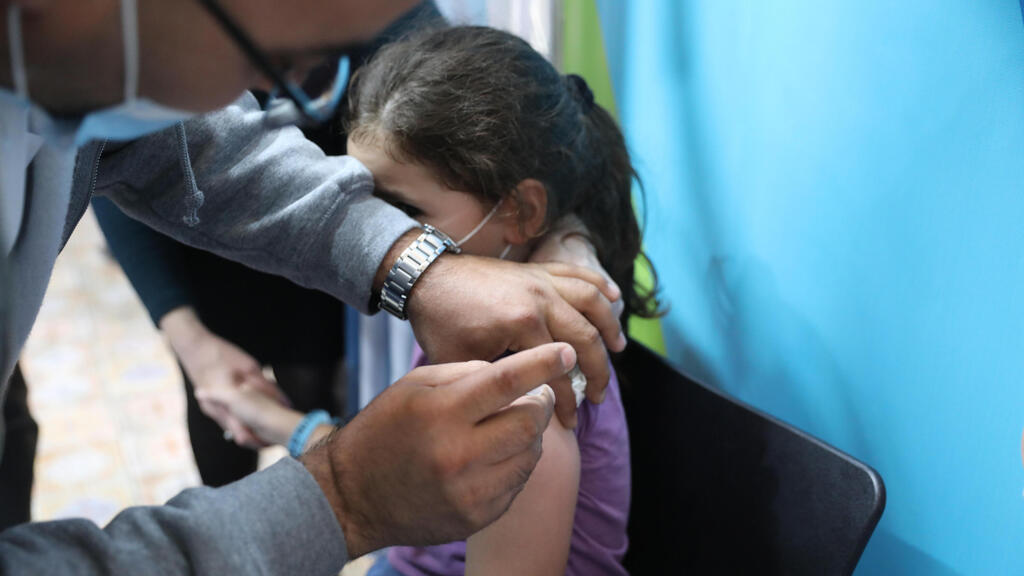A senior Health Ministry official said Wednesday the gravity of illness caused by the fast-spreading Omicron variant is still unclear and whether it results in only mild illness.
Director General of the Health Ministry Prof. Nachman Ash told Ynet on Wednesday urged the public to listen to health professionals. "We cannot say the variant causes a milder disease and cannot take its spread lightly."
3 View gallery


Health Ministry Dir. Gen. Nachman Ash and Omicron variant of COVID
(Photo: Yariv Katz, Reuters)
Ash also said that he will consider the recommendation of health experts to offer a fourth dose of the coronavirus vaccine to over 60s and immunocompromised.
On Tuesday, Israel became the first country in the world to offer the fourth vaccine shot after the panel of experts advising the coronavirus cabinet on the pandemic said that immunity to the virus six months after inoculation of the booster shot is reduced, and a 4th jab is advisable in light of the spread of Omicron.
"I will review all the material, hold consultations and make my decision which will be a recommendation only," Ash said. "I understand the considerations and leave the ultimate decision to the public," he said.
3 View gallery


A nurse prepares to administer the coronavirus vaccine in Tel Aviv
(Photo: Moti Kimchi)
Ash added the government was considering all ramifications of the current outbreak of coronavirus, including the economic ones, but urged ministers to adhere to the advice of medical professionals.
His comments came in response to an opinion voiced by Finance Minister Avigdor Liberman during Tuesday's cabinet meeting, when he said he believed Omicron was no worse than the flu.
"I think the government is conducting a serious debate, as it has done since the start of the pandemic. With vaccines available and preliminary reports that there may not be a more serious illness caused by Omicron, there is consideration of the next steps that must be taken," Ash said.
He also warned against potential mass contagion during New Year's celebrations, asking Israelis to act responsibly and avoid large parties and urging employers to scrap plans for office celebrations as well.
Responding to an idea raised by Justice Minister Gideon Saar, to incentivize parents with money in order to increase the rate of pediatric vaccinations, Ash said that idea was not to his liking.
"From the professional aspect, we in the ministry oppose financial compensation. We think it is ethically wrong especial after some families have already chosen to vaccinate their kids," he said.
"This could also adversely affect future vaccine drives, if people expect to be paid. We want the decision to receive vaccines to be personal ones, based on medicine," Ash said.


